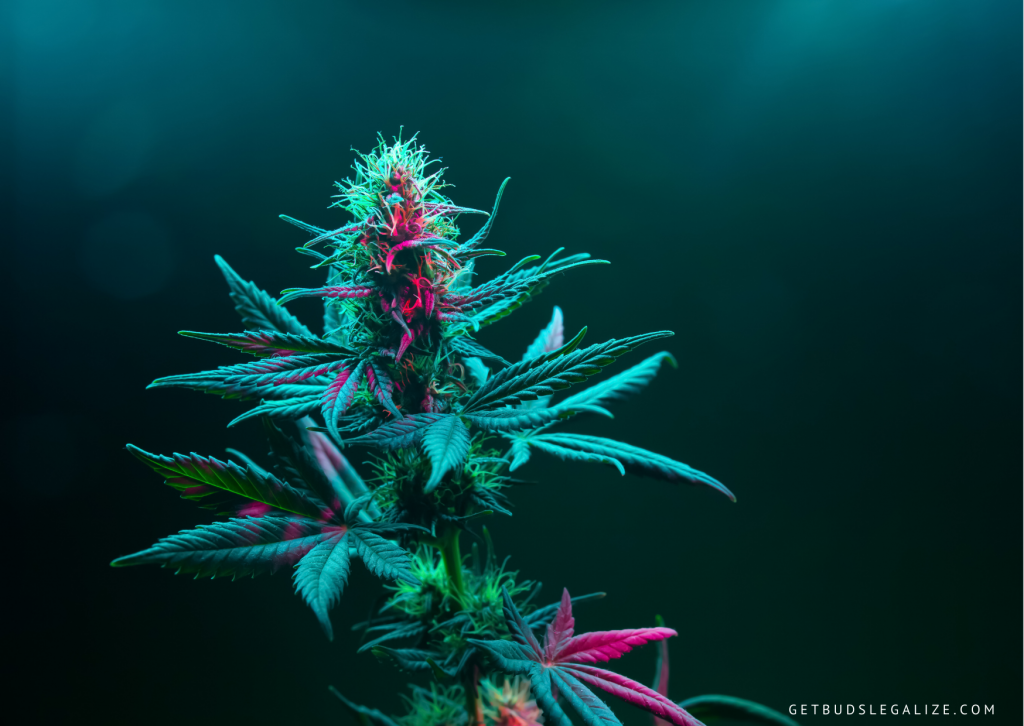Why Is THC DELTA 9 So Important?
In recent years, there has been a significant amount of research on the therapeutic benefits of cannabis. Cannabinoids are perhaps the most well-known cannabis compounds. Cannabinoids give the plant its medicinal properties. There are up to 113 different cannabinoids found in cannabis, including THC Delta 9 and CBD, but THC Delta 9 is by far the most common. THC Delta 9 is a molecule that is an extraction from the cannabis plant. THC delta 9 does not contain CBD, but it does have therapeutic value.
What is Delta-9 THC?
Delta 9 THC is a psychoactive component AND one of the main cannabinoids found in marijuana. In other words, it’s what makes users feel “high.” The function of Δ9 THC in the human body is to connect to CB1 receptors in different areas of the brain. These are areas that are related to memory, pleasure, coordination, time perception, and sensory perception.
The delta 9 refers to the number of carbons (or carbon chains) that are attached to the THC molecule, and there are other types of THC molecules with varying numbers of carbons. It’s important to know that all cannabinoids like CBD and CBG have a slightly different structure than THC delta 9 and differ in their unique effects and effectiveness.
Delta-9 THC Effects And Benefits
The most studied of all the cannabinoids, Δ9 THC, is powerful medicine. Studies have shown that using THC Δ9 to treat a variety of conditions, including chronic pain, nausea, and vomiting from cancer chemotherapy, fibromyalgia, inflammation, Insomnia, Depression, Post-traumatic stress disorder (PTSD), Reducing opioid use, Glaucoma, muscle spasms from multiple sclerosis, and severe weight loss associated with illness or AIDS.

How Does Delta 9 Help With Pain Management?
For many people, the idea of medical marijuana is still foreign. But for those who suffer from chronic conditions like multiple sclerosis (MS), it’s a welcome solution to pain management. According to
WebMD, more than 1.2 million people in the United States currently use medical marijuana.
“Considering this as one of the safest ways to get pain relief,” said Dr. David Berman, an internationally recognized expert on cannabis and pain management who has studied cannabinoids for over 40 years.
According to a study published in the Journal of Pain, researchers from the Perelman School of Medicine at the University of Pennsylvania found that THC Δ9 may help relieve chronic pain. The research team discovered that THC Δ9 blocks nerve function in regions of the brain associated with pain and inflammation. This finding could pave way for new methods to treat chronic pain.
The Difference Between Delta 9 THC vs Delta 8 THC vs CBD
Cannabidiol (CBD), tetrahydrocannabinol (THC Delta 9), and THC Delta 8 are both derived from the cannabis plant, like many other cannabinoids. However, unlike Delta 9 THC, CBD and Delta 8 THC are non-psychoactive.
CBD also does not produce the “high” that comes with THC Delta 9. A major difference between the two compounds is their chemical shapes and how they interact with receptors in the human body.
Delta 8 is a rarer form of THC that won’t get you high. It’s non-psychoactive and has unique medicinal benefits. The difference between Delta 8 and Delta 9 THC lies in its ability to penetrate cell membranes. Research has shown that Delta 8 can enter cancer cells, while Delta 9 cannot. This may make Delta 8 a better option for fighting off cancer, while also having fewer side effects on non-cancerous cells.
The benefits of Delta-9 THC are similar to Delta-8, but the former is more potent than the latter. When smoking Delta-9 THC, the effects are felt almost immediately, whereas Delta-8 effects may not be felt for up to 90 minutes after consumption.

Where Can You Find THC Delta-9?
The THC Delta 9 is one of the many chemicals found in cannabis. Both marijuana and hemp plants produce a chemical compound when grown in soil with high levels of acidity.
Can You Extract Delta-9?
While it’s true that you can make THC Δ9 yourself in your own home, it’s also true that this is not something you should try at home. The reason for this is the fact that it takes a laboratory to create pure THC Δ9 safely. However, there are plenty of places where you can find THC Δ9. For instance, there are many legal cannabis clubs scattered across the globe. Extracting THC Δ9 is not that simple, but it is possible.
It would be possible to extract the Delta 9 THC in marijuana by using a process called supercritical fluid extraction. Furthermore, it uses carbon dioxide at extremely high pressures and temperatures to extract chemicals from plants. It seems that the only reason why this has not been done yet is that weed has low concentrations of delta 9 THC compared to other parts of the plant, so trying to isolate it would be very difficult.
How Much THC Δ9 Should I Take?
There is no one-size-fits-all answer to this question. The most common dosage is 10 mg of THC Δ9 for every kilogram of body weight. The dosage can be taken in one go or split up into smaller doses over the day. It all depends on your level of tolerance and the specific strain of cannabis you are taking.

Is Delta-9 Addictive?
Delta-9 THC is the most commonly discussed compound in cannabis science today. A lot of studies have been done on this particular psychoactive component of weed, and its addictive properties are heavily debated. The smoking community has a very opinionated stance on the question of whether or not people can get addicted to Δ9 THC.
Formal studies have found that Δ9 THC is not addictive. The psychoactive ingredient in marijuana (THC) is less addictive than caffeine and nicotine. Subsequently, because it affects your endocannabinoid system differently than most drugs of abuse.
Unlike other substances that kill brain cells or flood the brain with dopamine, THC has a milder effect on the brain and causes slowdown inactivity.
To wrap things up
THC Δ9 is a natural compound focusing on the many studies and research papers over the past few decades. Meanwhile, it’s still not clear whether this compound will be used as part of any medicinal treatments shortly. We do know that it shows promise for treating a variety of conditions. As marijuana laws change, medical marijuana will only continue to grow in popularity. With so many people able to benefit from this miracle drug, it’s no wonder the future looks promising!
It is morally reprehensible to deny people suffering from serious illnesses such as cancer, HIV/AIDS, and Multiple Sclerosis the right to use medical marijuana as a medication. Our society owes it to those in need, particularly when it comes to palliative care.










